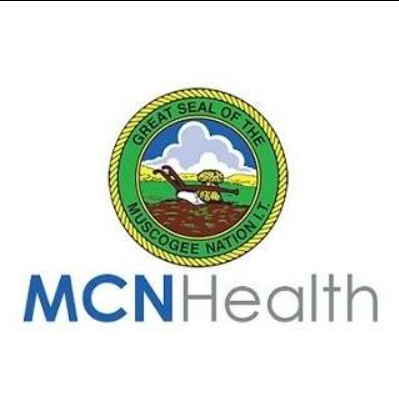Creek Nation Behavioral Health and

Contact Details
-
Name:Creek Nation Behavioral Health and
-
Address:2360 U.S. Highway 62
Okmulgee, OK - 74447 -
Phone:918-758-1910
-
Email:
-
Instagram:
-
Website:
Description
There are currently state and federally funded or sponsored drug and alcohol treatment centers in the state of Oklahoma
Questions & Answers
Help others like you find out more about Creek Nation Behavioral Health and. Do you know the answers to any of these questions? Contribute now and help others like you.
What kinds of care do they offer?
-
Substance use treatment
Refers to a broad range of activities or services, including identification of the problem (and engaging the individual in treatment); brief interventions; assessment of substance abuse and related problems including histories of various types of abuse; diagnosis of the problem(s); and treatment planning, including counseling, medical services, psychiatric services, psychological services, social services and follow-up for persons with alcohol or other drug problems (Institute of Medicine, 1990).
-
Treatment for co-occurring substance use plus either serious mental health illness in adults/serious emotional disturbance in children
Housing for individuals recovering from substance abuse that is designed to provide a drug and alcohol-free living environment and appropriate support services to facilitate movement to independent living. Such housing includes transitional living, sober houses, sober living, recovery houses, and 3/4 houses.
What types of opioid treatment do they provide?
-
Accepts clients using MAT but prescribed elsewhere
What types of treatment approaches do they offer?
-
Cognitive behavioral therapy
Involves recognizing unhelpful patterns of thinking and reacting, and then modifying or replacing these with more realistic or helpful ones. The therapy can be conducted with individuals, families, or groups, and clients are generally expected to be active participants in their own therapy.
-
Telemedicine/telehealth therapy
The ability for healthcare providers, working from a distance using telecommunications technology, to communicate with patients, diagnose conditions, provide treatment, and discuss healthcare issues with other providers to ensure quality healthcare services are provided. Other names used for this treatment approach are: e-medicine, e-therapy, e-psychiatry, and telepsychiatry.
-
Substance use disorder counseling
A short-term treatment that has been generalized for a variety of disorders including opiate drug dependence and cocaine abuse. The therapy includes supportive techniques which encourage the patient to discuss personal experiences, and expressive techniques, which enable the patient to work through interpersonal relationship issues and gain greater self-understanding.
-
Trauma-related counseling
Cognitive behavior techniques adapted for clients suffering from post-traumatic stress disorder (PTSD) and other effects of abuse and trauma.
-
Brief intervention
A short-term intervention, usually one to five sessions, for substance abusers who are not yet dependent.
-
Motivational interviewing
A counseling approach which acknowledges that many people experience ambivalence when deciding to make changes. Its aim is not to focus immediately on the action of changing, but to work to enhance motivation to change.
-
Relapse prevention
A cognitive behavioral therapy developed for the treatment of problem drinking and adapted later for cocaine addicts. Cognitive behavioral strategies are based on the theory that learning processes play a critical role in the development of maladaptive behavioral patterns. Individuals learn to identify and correct problematic behaviors. Relapse prevention encompasses several cognitive behavioral strategies that facilitate abstinence as well as provide help for people who experience relapse.
-
Smoking not permitted
Smoking is not allowed.
What type of setting is this location?
-
Outpatient
Describes patients who receive treatment services without an overnight stay at a treatment facility or hospital.
-
Regular outpatient treatment
What type of hospital is this?
-
General Hospital (including VA hospital)
A hospital in which patients with many different types of ailments are given care.
Who is responsible for the operation of this facility?
-
Tribal government
A governing body of a group of Native American Indians or Alaska Natives that qualifies as an Indian tribal government determined by the Internal Revenue Services.
What types of license or certifications or accreditation does this facility posses?
-
State department of health
-
Federally Qualified Health Center
An entity may qualify as a FQHC if it meets one of these requirements (CMS, 2017): Is receiving a grant under Section 330 of the Public Health Service (PHS) Act or is receiving funding from such a grant and meets other requirements; Is not receiving a grant under Section 330 of the PHS Act, but is determined by the Secretary of the Department of Health and Human Services (HHS) to meet the requirements for receiving such a grant (i.e., qualifies as a FQHC "look-alike") based on the recommendation of the Health Resources and Services Administration (HRSA); Was treated by the Secretary of the Department of HHS for purposes of Medicare Part B as a comprehensive Federally-funded health center as of January 1, 1990; Is operating as an outpatient health program or facility of a tribe or tribal organization under the Indian Self-Determination Act or as an urban Indian organization receiving funds under Title V of the Indian Health Care Improvement Act as of October 1, 1991.
What types of payment or funding do they accept?
-
Medicaid
A joint federal and state program that helps with medical costs for some people with low incomes and limited resources. Medicaid programs vary from state to state.
-
Medicare
The federal health insurance program for people age 65 and older and people with disabilities.
-
Private health insurance
-
Federal military insurance (e.g., TRICARE)
-
Federal, or any government funding for substance use treatment programs
Financial assistance provided by the federal, state, or local government for substance use treatment.
-
IHS/Tribal/Urban (ITU) funds
Direct funds from the Indian Health Service. They consist of tribal funds through "638 contracts" (named after the public law under which they were authorized) and/or urban funds through federal Title 5 grants. These funds are considered part of the India health care system and can be used for programs that provide behavioral health services as well as for programs that provide other health-related services.
Is any payment assistance available?
-
Payment assistance (check with facility for details)
A program which helps low-income, uninsured, or underinsured patients who need help paying for all or part of their medical bills.
What language services are offered?
-
Sign language services for the deaf and hard of hearing
Service provided for persons who are deaf and hard of hearing.
What ancillary services are offered at this facility?
-
Case management service
Helps people arrange for appropriate services and supports through a case manager who monitors the needs of clients/patients and their families and coordinates services, such as mental health, social work, health, educational, vocational, recreational, transportation, advocacy, and respite care, as needed.
-
Integrated primary care services
Address the general health care needs of persons with mental health and substance use problems. These general health care needs include the prevention and treatment of chronic illnesses (e.g., hypertension, diabetes, obesity, and cardiovascular disease) that can be aggravated by poor health habits such as inadequate physical activity, poor nutrition, and smoking. The services include screening, coordinating care among behavioral health care staff and medical staff; and providing linkages to ensure that all patient needs are met in order to promote wellness and produce the best outcomes.
-
Suicide prevention services
Include identifying risk factors; educating staff on identifying the signs of suicidal behavior and using methods to detect risk; and the assessment, intervention, and management of suicidal patients including treatment of an underlying mental or substance use disorder, and use of psychotropic medication, supportive services, and education. Hotlines help individuals to contact the nearest suicide prevention mental health provider.
-
Mental health services
Assessment, diagnosis, treatment or counseling in a professional relationship to assist an individual or group in alleviating mental or emotional illness, symptoms, conditions or disorders.
What types of screening and assessment methods are used here?
-
Screening for tobacco use
Determines a client's use of tobacco products, such as cigarettes, cigars, pipe tobacco, or smokeless tobacco. It is generally recommended that providers screen for tobacco use on a regular basis by asking clients, as they are seen, about their current and past use of tobacco products and their exposure to secondhand smoke or tobacco.
-
Comprehensive mental health assessment
An examination used to ascertain whether or not a patient is functioning on a healthy psychological, social, or developmental level. It can also be used to aid diagnosis of some neurological disorders, specific diseases, or possible drug abuse.
-
Screening for mental disorders
Test to determine whether a person is experiencing symptoms of mental health conditions and needs treatment.
-
Screening for substance use
Test to determine whether a person is experiencing symptoms of substance use and needs treatment.
What kinds of education and counseling services are offered here?
-
Individual counseling
Process through which clients work one-on-one with a trained mental health clinician in a safe, caring, and confidential environment.
-
Group counseling
Form of therapy where people with similar experiences/issues come together with a professional therapist.
-
Family counseling
A type of psychological counseling (psychotherapy) that can help family members improve communication and resolve conflicts.
-
Marital/couples counseling
-
HIV or AIDS education, counseling, or support
Access to education, counseling, and support groups to ?at risk? individuals and also individuals who have been infected with the virus.
-
Substance use disorder education
What age groups are accepted here?
-
Children/Adolescents
Facility accepts children/adolescents (12 or younger) for treatment.
What genders are accepted here?
-
Female
-
Male
What types of testing do they offer?
-
Breathalyzer or blood alcohol testing
A device for estimating blood alcohol content (BAC) from a breath sample.
-
Drug or alcohol urine screening
Analyzes your urine for the presence of certain illegal drugs and prescription medications.
-
HIV testing
Determines whether you are infected with HIV, a virus that weakens the immune system and can lead to acquired immunodeficiency syndrome.
-
Testing for Hepatitis C (HCV)
Test for Hepatitis C, which is usually done and recommended for persons currently injecting drugs, ever injected drugs, were prior recipients of transfusions or organ transplants, or have certain medical conditions, including persons: 1. who received clotting factor concentrates produced before 1987 2. who were ever on long-term hemodialysis 3. with persistently abnormal alanine aminotransferase levels (ALT) 4. who have HIV infection
What kinds of transitional services do they provide if any?
-
Discharge Planning
A process that aims to improve the coordination of services after discharge from the hospital by considering the patient?s needs in the community.
Who provides the opioid medications used in treatment?
-
No formal relationship with prescribing entity
What types of alcohol abuse treatment are available at this facility?
-
Accepts clients using medication assisted treatment for alcohol use disorder but prescribed elsewhere
Who provides the medication used in alcohol abuse treatment?
-
No formal relationship with prescribing entity
What specific pharmacotherapy treatments do they provide?
-
Medication for mental disorders
-
Medications for pre-exposure to prophylaxis
What other types of addiction do they treat?
-
Treatment for other addiction disorder
Treatment for behavioral addictions or process addictions and occur when a person is dependent upon a specific behavior (i.e. gambling addiction, compulsive shopping disorder, etc.).
Is vaping allowed at this facility?
-
Vaping not permitted
How do I apply for admission at this location?
Have you been to this facility? What was your experience?
Is there a wait-list for treatment center?
Is any payment required?
Related Posts
Creek Nation Behavioral Health
- Okemah, OK
- 24.70 miles away

